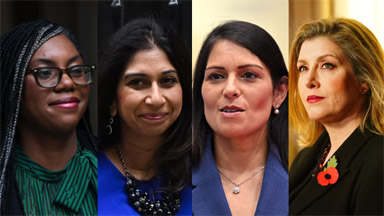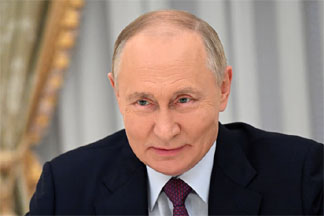
London (TIP): Stefan Stern, City, University of London. Grant Shapps is running. The Tory MP has held what seems like every ministerial post possible and is famous in Westminster for his command of spreadsheets and data—in other words, for tracking the views and intentions of his fellow Tory MPs. He is ready for the battle ahead.
Priti Patel is running. The former home secretary is on good terms with Nigel Farage, leader of the Reform party. “She could plausibly present herself as the candidate who could best unify a divided right,” according to Paul Goodman, a former Conservative MP.
Kemi Badenoch is running. She is less of a fan of Farage’s, but has set out some sharp views, including on gender identity, which have further endeared her to many existing admirers on the right.
Penny Mordaunt is running. She has the profile after her striking sword-bearing role in the King’s coronation. She also has a confident manner on television, as exemplified in her appearance on the first seven-way debate of the campaign, during which, it should be noted, she said her boss, the prime minister, had been “completely wrong” to leave the D-day commemoration events rather early. She also has, it must be admitted, great hair.
Robert Jenrick is running. A new champion of tougher rules on immigration, a slimmed-down Jenrick has worked hard to establish a forceful political identity for himself.
And Suella Braverman is running. Hope—and ambition—spring eternal. And yet none of these people appear to be running for July 4. Their sights are set firmly on July 5.
Even as the Conservative Party stands poised to suffer one of its biggest ever election defeats, potential contenders to succeed Rishi Sunak as party leader are preparing for the fight to come. The body of the (seemingly) outgoing leader is not yet cold, but already thoughts are turning to the post-Sunak future.
This is business as usual at Westminster, where an old, macabre joke has it that, on hearing of the death of an elderly fellow MP, the traditional response is: “Oh dear, how sad, what was the majority?”
Future leadership contenders—Patel, Badenoch and Braverman—are positioning themselves with regard to their future relationship with Farage and the Reform Party rather than with the electorate. The current low poll rating for their own party has not dimmed their enthusiasm or energy levels.
What explains this sort of burning ambition, which seems to manifest itself as a renewable form of energy? The subject of ambition has intrigued me for many years, so much so that eventually I wrote a book about it, which is being published next month, just as Conservative ambitions are likely to collide in a fresh leadership battle.
The book’s title: Fair or Foul – the Lady Macbeth Guide to Ambition, hints at that ambivalence which, I think, many people experience with regard to personal and professional goals. On the one hand, we know that life can be extremely competitive and that the meek are very unlikely to inherit the earth. There is nothing wrong with being ambitious to achieve more and secure our future.
And yet, how do we feel when confronted by the truly, deeply ambitious—those people whose ruthlessness and determination can cause unease and even revulsion? How much time do we really want to spend around people like that? For a politician seeking popularity, and votes, these are hardly trivial questions. (AFP)




Be the first to comment